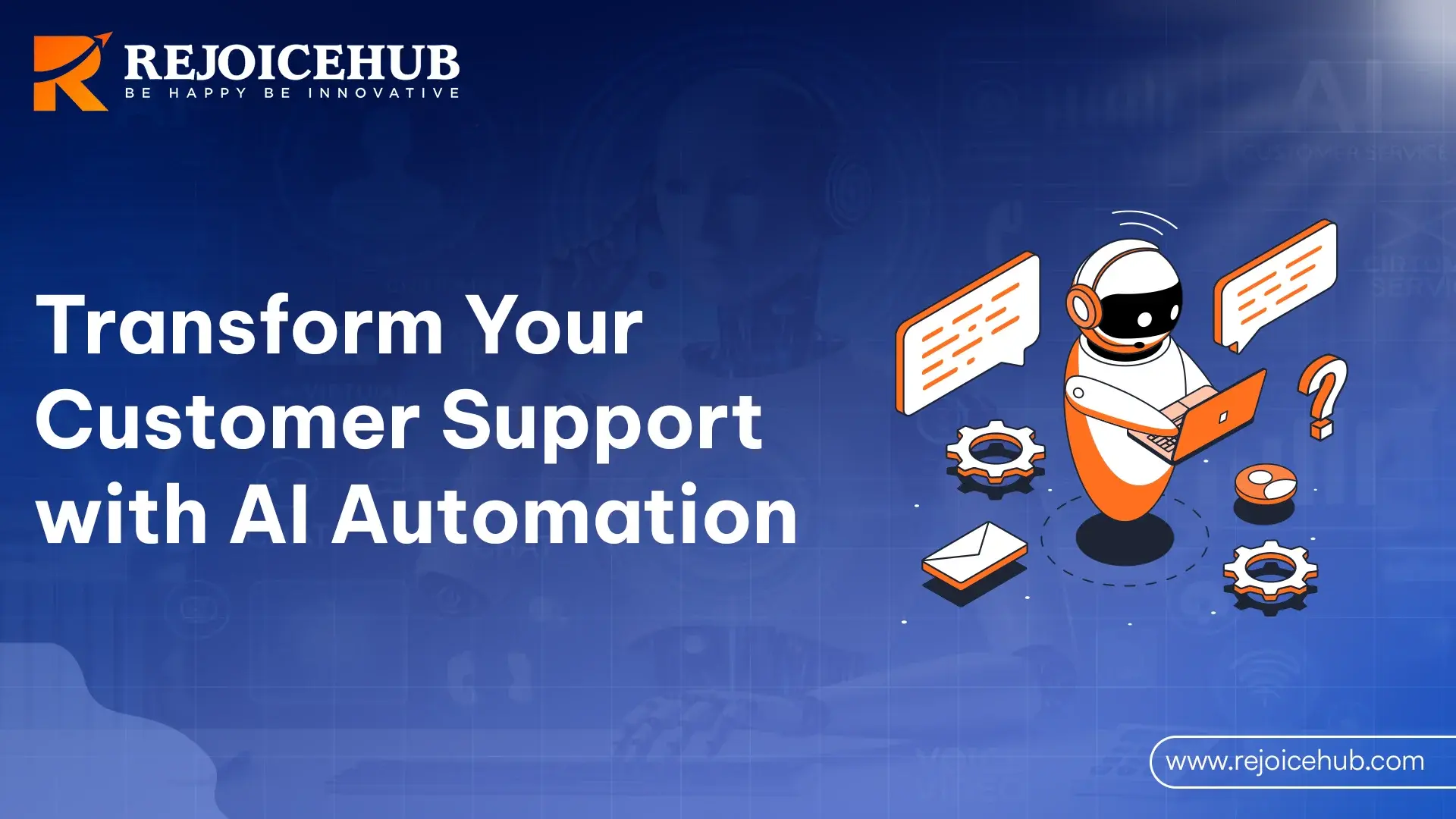
AI agents are changing the game in customer support by automating complex tasks and providing exceptional service experiences. These smart systems use natural language processing, machine learning, and predictive analytics to handle customer inquiries more efficiently than ever before.
Your customer support team can benefit from AI automation in several powerful ways:
- 24/7 Instant Response: AI agents provide immediate assistance to customers around the clock
- Reduced Workload: Automated handling of routine inquiries lets human agents focus on complex cases
- Consistent Service Quality: AI delivers standardized responses while maintaining a personal touch
- Data-Driven Insights: Advanced analytics help identify trends and optimize support processes
- Cost-Effective Scaling: Handle increasing support volumes without proportional staff increases
AI automation transforms traditional customer service into a proactive, efficient operation. By implementing AI agents in your support workflow, you'll create seamless experiences that satisfy customers while reducing operational costs. The technology adapts to your specific needs, learning from interactions to continuously improve its performance and deliver increasingly personalized support.
Enabling Technologies Behind AI Automation
AI-powered customer support relies on several key technologies working together to deliver intelligent, automated solutions. Let's explore these foundational technologies that drive modern customer service transformation:
NLP enables AI systems to understand and interpret human language naturally. Your customers can communicate in their own words, and NLP algorithms:
- Detect intent and context in customer queries
- Extract key information from conversations
- Generate human-like responses
- Identify sentiment and emotional undertones
ML algorithms continuously improve support operations by learning from each interaction:
- Analyzing historical support tickets to identify common patterns
- Adapting responses based on successful resolution strategies
- Refining classification accuracy for support issues
- Creating personalized interaction models for different customer segments
RPA handles repetitive tasks with precision and speed:
- Automating data entry and validation
- Processing refund requests
- Updating customer records
- Managing ticket routing and escalation
This technology helps you stay one step ahead of customer needs:
- Forecasting support volume trends
- Identifying potential customer issues before they escalate
- Recommending proactive solutions
- Optimizing resource allocation based on demand patterns
Seamless connection with your CRM system creates a unified support ecosystem:
- Real-time access to customer history and preferences
- Synchronized data across all support channels
- Automated updates to customer profiles
- Enhanced reporting and analytics capabilities
These technologies form a robust foundation for AI-powered customer support, enabling intelligent automation that scales with your business needs. The integration of these systems creates a powerful support infrastructure capable of handling complex customer interactions while maintaining high service quality.
Streamlining Customer Support Workflows with AI Agents
AI agents are changing the game for customer support operations by automating key workflows intelligently. Here's how these systems are transforming daily support processes:
AI-powered chatbots and virtual assistants provide instant responses to customer inquiries 24/7. These systems can:
- Process natural language queries and match them with appropriate solutions
- Handle multiple conversations simultaneously
- Provide consistent answers across all channels
- Route complex issues to human agents when needed
AI systems enhance support ticket workflows through intelligent categorization and routing:
Automatic Classification: AI analyzes ticket content to assign priority levels and categories
- Smart Assignment: Tickets route to the most qualified agents based on expertise
- Resolution Suggestions: AI provides agents with relevant solutions from past cases
- Workload Balancing: Systems distribute tickets evenly across support teams
AI technology streamlines data management tasks:
- Extracts relevant information from customer communications
- Updates customer records automatically
- Validates data entries in real-time
- Flags potential errors or inconsistencies
The implementation of these AI-driven workflows creates a ripple effect across support operations. Support teams report up to 80% reduction in response times and 60% decrease in manual data entry tasks. Human agents can focus on complex problem-solving while AI handles routine inquiries.
AI systems learn from each interaction, continuously improving their ability to:
- Recognize customer intent
- Predict common issues
- Suggest appropriate solutions
- Maintain accurate customer records
These automated workflows integrate seamlessly with existing support channels, creating a unified customer experience across email, chat, phone, and social media platforms. Support teams gain access to real-time insights and analytics, enabling data-driven decisions to enhance service quality.
Also Read: How Can AI Agents Help Automate Your Workflows in 2025
Enhancing Personalization and Performance Monitoring in Customer Support Automation
AI-driven personalization transforms standard customer interactions into meaningful engagements. By analyzing historical data, purchase patterns, and previous interactions, AI agents create tailored responses that resonate with individual customers.
- Dynamic response adaptation based on customer communication style
- Customized product recommendations using behavioral analysis
- Language and tone adjustments matching customer preferences
- Contextual suggestions drawn from past interactions
The integration of AI analytics tools provides deep insights into support workflow performance. These tools track key metrics and generate actionable data for continuous improvement.
- Real-time dashboard tracking of response times
- AI-powered bottleneck detection in support processes
- Automated performance reports highlighting areas for optimization
- Predictive analytics for resource allocation
Support teams can leverage AI analytics to:
- Identify peak customer contact periods
- Optimize agent scheduling
- Reduce resolution times
- Track customer satisfaction metrics
AI systems continuously learn from each interaction, refining their ability to provide personalized support. This machine learning capability enables the system to anticipate customer needs and adapt responses based on evolving preferences.
The combination of personalization and performance monitoring creates a dynamic support environment that evolves with your customer base. AI analytics tools provide the data-driven insights needed to refine automated workflows and enhance customer experiences.
Understanding the Benefits and Challenges of Using AI Agents in Customer Service
AI automation in customer service offers significant operational benefits, but it also comes with specific challenges that need careful thought.
-
Operational Efficiency Boost24/7 customer support availability
-
Instant response times for common inquiries
-
Reduced workload on human agents by up to 80%
-
Streamlined ticket routing and resolution
-
Significant Cost ReductionLower staffing requirements for routine tasks
-
Decreased training expenses
-
Minimized error-related costs
-
Reduced overhead expenses
-
Enhanced Customer ExperienceConsistent service quality across interactions
-
Personalized support based on customer history
-
Multi-language support capabilities
-
Proactive issue resolution
-
Data Privacy ComplianceImplement robust data encryption protocols
-
Regular security audits and updates
-
GDPR-compliant data handling processes
-
Clear customer consent mechanisms
-
Secure data storage and transmission systems
-
Investment RequirementsInitial platform acquisition costs
-
Integration expenses with existing systems
-
Staff training and development
-
Ongoing maintenance and updates
-
Training and AdaptationRegular AI model updates
-
Continuous performance monitoring
-
Staff upskilling programs
-
Feedback integration systems
Companies using AI agents must weigh these benefits against possible challenges. A well- organized implementation plan helps organizations make the most of the benefits while effectively handling the risks involved.
Success in using AI often relies on creating detailed implementation plans that cover both technical needs and organizational change management requirements.
The right mix of technology investment and strategic planning allows businesses to fully utilize AI in their customer service operations. Organizations that carefully think about both opportunities and challenges are better positioned to achieve the best outcomes from their AI implementation efforts.
Key Considerations for Successful Implementation of AI Agents in Customer Support Workflows
A successful AI implementation starts with a thorough assessment of your organization's readiness. You need to evaluate your current support infrastructure, team capabilities, and technological requirements before integrating AI agents into your workflows.
- Conduct a detailed analysis of existing customer support processes
- Map out specific pain points and bottlenecks in current workflows
- Identify areas where AI can create the most significant impact
- Assess your team's technical expertise and training needs
Your AI implementation needs clear, measurable objectives aligned with your business goals:
- Response time reduction targets
- Customer satisfaction score improvements
- Cost savings projections
- Resolution rate expectations
- Agent productivity benchmarks
The chosen platform should match your specific requirements:
- Scalability: Ability to handle growing support volumes
- Integration capabilities: Seamless connection with existing CRM systems
- Multilingual support: Language capabilities matching your customer base
- Customization options: Flexibility to adapt to your unique workflows
- Analytics features: Robust reporting and performance tracking tools
Your platform selection process should include thorough vendor evaluations, proof-of-concept testing, and careful consideration of long-term maintenance requirements. Consider platforms that offer comprehensive documentation, reliable technical support, and regular updates to ensure sustained performance.
Conclusion
AI automation is changing the game in customer support by creating flexible and responsive service environments. With the combination of AI agents and human expertise, we have a powerful solution - machines take care of simple tasks while support teams handle complex and valuable interactions.
To successfully implement AI, you need to:
- Assess your support needs strategically
- Set clear performance metrics
- Choose scalable and feature-rich platforms
- Continuously monitor and optimize your processes
This technological shift allows businesses to:
"Build agile support operations that scale effortlessly while maintaining personalized customer experiences"
The future of customer support lies in the smooth collaboration between AI systems and human teams. Companies that adopt this hybrid approach will be able to provide better service experiences, lower operational costs, and stay ahead of the competition in an increasingly digital marketplace.
If you're looking to automate your customer support, the first step is to implement AI agents. This will help you streamline workflows, improve efficiency, and build strong relationships with your customers. RejoiceHub offers cutting-edge AI agent solutions designed to enhance your customer experience while reducing the burden on your support teams.
Frequently Asked Questions
What is AI automation in customer support?
AI automation in customer support refers to the use of artificial intelligence technologies like chatbots, natural language processing, and machine learning to handle customer inquiries, resolve issues, and streamline support operations without human intervention.
How do AI agents improve customer service?
AI agents provide 24/7 support, reduce response times, offer consistent service quality, and free up human agents to focus on complex tasks, enhancing the overall customer experience.
What technologies power AI-driven customer support?
Key technologies include Natural Language Processing (NLP), Machine Learning (ML), Robotic Process Automation (RPA), predictive analytics, and CRM integrations.
Can AI agents handle all types of customer queries?
AI agents are highly effective at managing routine and repetitive inquiries. However, complex or emotionally sensitive issues are typically escalated to human agents.
